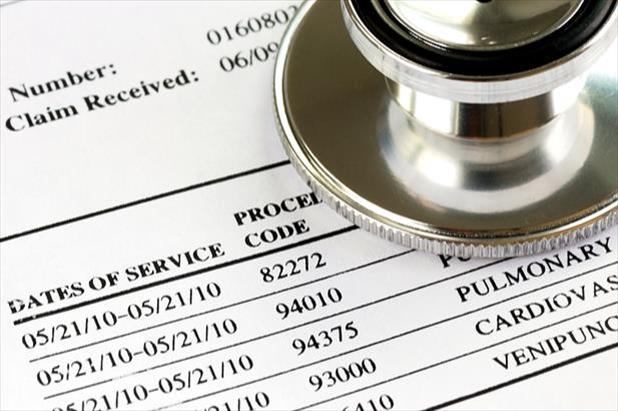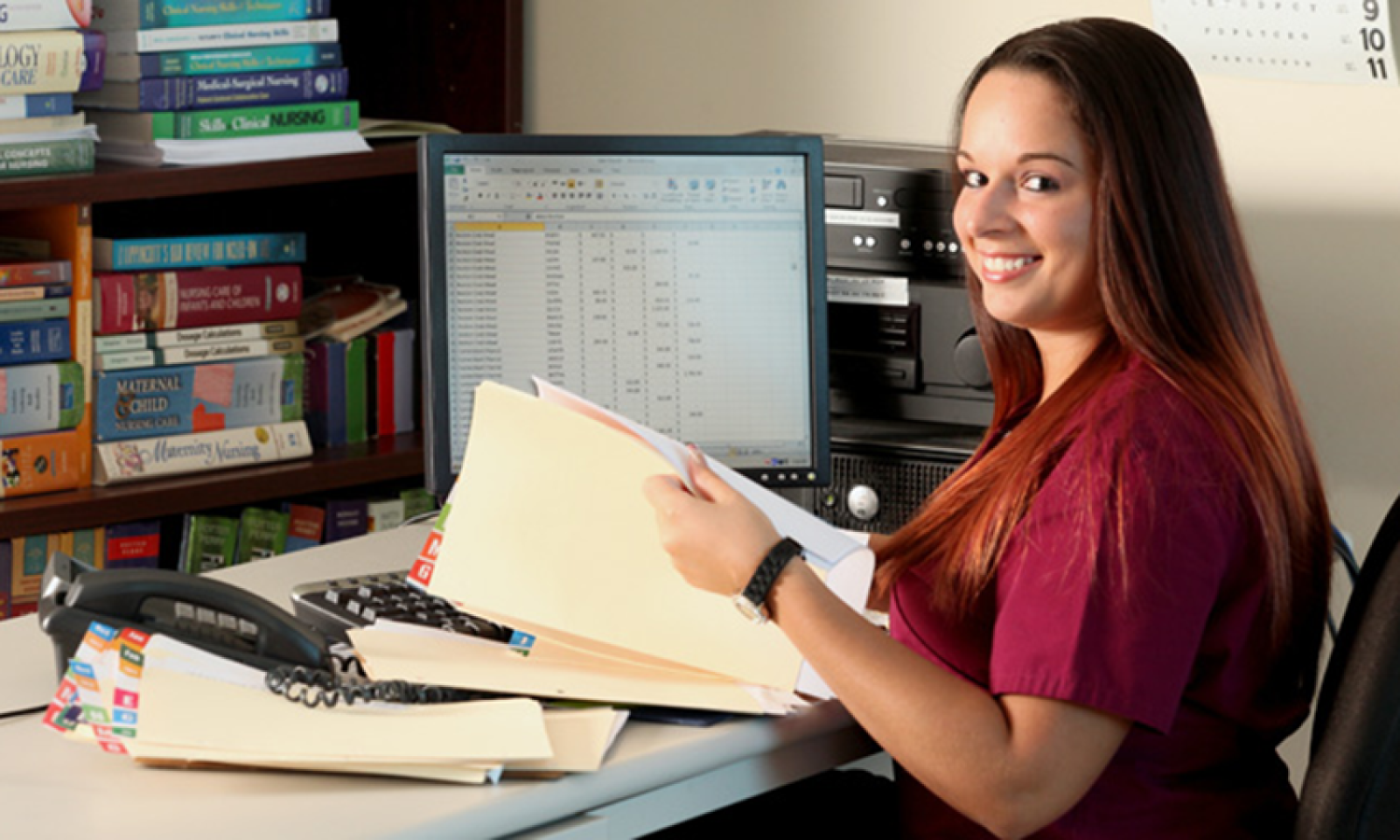How to Become Medical Billing and Coding Specialist in 9 Months or Less
Want to make $60, $70, or even $80,000/year with under 1 year of training? Medical billing and coding is a rapidly growing field with multiple paths to entry and great benefits. Read on to find out how to get started.

Medical billing and coding is rapidly gaining popularity - due to its high starting salaries and great benefits. In this article, we'll discuss:
- What medical billing and coding is
- How to become a medical billing and coding specialist
- What medical billers and coders make in salary
- What the day-to-day is like for medical billers and coders
Medical billing and coding is a lucrative and growing career option
Medical billing and coding is a hot new field in the growing healthcare industry that can be very lucrative for its members - often paying upwards of $60- to $70- to $80,000 or more per year in annual salary.
It is #9 in U.S. Health & World Report's list of “25 Best Jobs that Don’t Require a College Degree,” #12 in “Best Health Care Support Jobs” and on the “The 100 Best Jobs” list.
Medical billers and coders can look forward to great job security
Prospective medical coders can also look forward to job security and perks when on the job. Medical billing and coding professionals work in either private office or hospital settings, and enjoy great benefits in addition to their high salary.
Medical billers and medical coders are responsible for processing patient data and insurance
As a medical billing and coding professional, you will be responsible for translating complex medical records, such as a surgery report or patient diagnosis, into a digital form that can be searched, stored, billed, and analyzed.
This will require you to be familiar with both the medical procedures performed, as well as the way these procedures are represented in medical information systems and electronic health records.
Medical coders work with healthcare providers and doctor's offices
Medical coders work with healthcare providers and doctor's offices to make sure that patients are cared for properly and medical systems are billed correctly for the care they receive.
You will be trained thoroughly in these systems, insurance policy, and the Health Insurance Portability and Accountability Act (HIPAA).
You can become a medical biller through a Bachelor's degree, Associate's degree, or Certificate program
You can become a medical biller or medical coder with a Bachelor's degree program, Associate degree program, or Certificate program.
Bachelor's programs offer a longer and more complete path into healthcare
Bachelor's degree programs are usually 4 years long and usually come with a major in healthcare administration or health information management.
Candidates who pursue this option usually enjoy the opportunity to take courses in health policy, compliance, data analytics, and project management, and position themselves as top candidates with plenty of opportunity for advancement.
Associate degrees provide a well-rounded education
Associate programs in healthcare administration and health information management last 2-3 years and provide the opportunity to learn the basics of medical coding while also taking courses of interest in healthcare or business.
This can help if your goal is to obtain a leadership position, or to go on to complete a 4-year degree in the healthcare field.
Certificate programs are the fastest way to break into the field
Certificate programs are professionally-oriented programs lasting 9 months or less that are focused on getting you into the field quickly. They are usually composed of 4-6 classes that can be completed either full-time or part-time, and are flexible to your schedule.

We recommend going through a Certificate program
We highly recommend going through a Certificate program, for three reasons:
- It's faster (9 months vs 4 years),
- It's cheaper ($900 - $2000, vs up to $10,000),
- You learn the same material, and
- You can start working and earning right away.
You can always build up from a certificate to an Associate degree or Bachelor's degree if you like
By enrolling in a certificate program, your coursework still counts towards an Associate or Bachelor's degree, so you waste no time or dollars. By pursuing this route, you can be at work in your new career in less than 1 year, and still have the opportunity to grow and pursue more career opportunities along the way.
In the rest of this post, we'll cover what it takes to become a medical biller or medical coder through a medical coding Certificate program.
Certificate programs prepare you directly for work in the field
Certificate programs are the quickest way to break into the field with all the skills you will need for a successful career in medical coding.
These are professionally-focused programs, managed by industry professionals and provided by an accredited university, that provide hands-on medical coding training, and prepare you directly for immediate employment.
You will learn about medical terminology and get hands-on medical coding practice
You will learn about modern treatment procedures, medical terminology, body systems and anatomy, disease processes, the specifics of the health insurance system, and how to work with healthcare providers.
You will also actively practice using the CPT Category II and ICD-10 medical codes. You will gain hands-on experience with medical billing and coding software, and optionally prepare for an externship that will get you additional experience in the field.
Finally, you will also gain proficiency in medical office software, billing procedures, and regulatory compliance to prepare for the first day on the job.
You will be prepared to take the CPC, CCA, or CBCS exams
At the end of your certificate program, you will be prepared to take one of the official medical coding certifications - either the CPC, CCA, or CBCS exam. Upon passing the exam of your choice, you will receive your certification and be prepared to enter the job market.
In the next section, we will cover these different exams, and how they can help you in your career as a medical biller and coder.

Get credentialed with the CPC, CCA, or CBCS exam
After completing your program, you will need to get credentialed by passing the CPC, CCA, or CBCS exam.
Passing any of these exams demonstrates your competency in the field of medical coding and billing.
The exam you choose certifies you for work in physicians' offices, hospital settings, or both
Since medical coders work in either a private practice or hospital setting, the exam you choose determines what jobs you will be qualified for. It's important to consider what work setting you prefer when choosing an exam to take.
With your certification in hand, you will be qualified for any entry-level job you choose to pursue.
Please note: it is possible to pursue multiple exams and certifications, though students often complain that the exam fees can start adding up.
The CPC exam is a well-regarded certification that qualifies you for practice in a physician or doctor's office
The CPC (Certified Professional Coder) exam is offered by the American Academy of Professional Coders (AAPC), and prepares you for work in a physician's, or doctor's, office. It is the gold standard entry-level coding certification for physician practices.
The CPC exam is entirely multiple choice
The CPC exam costs $299 (online) - $399 (in-person), and consists of 100 multiple-choice questions covering 17 topics. You also have to be a member of the AAPC to register ($190).
It is "open book": most questions involve a coding scenario requiring you to draw on reference books, like the ICD-10-CM and HCPCS Level II code manuals, to complete it. It is taken in 2 parts, 2 hours each. You will have 4 hours to complete the exam and must answer 70% of the questions correctly in order to pass.
Students say that the online exam is easier than in person, and many report passing on their first try. Successful students say they studied for the CPC for 2-6 months, and took at least 1 practice test. Practice tests can be found on the AAPC site, CCO.org, and here on our very own site.
The CCA exam is the only credential that qualifies you to work in both physician and inpatient hospital settings
The CCA (Certified Coding Associate) exam is offered by the American Health Information Management Association (AHIMA), and certifies you for work both in a physician's office and in hospital settings. It is widely accepted and well regarded, and is the only entry-level credential that will certify you for both work environments.
The CCA exam is entirely multiple choice
The CCA exam costs $199 for members of AHIMA and $299 for non-members (you can become a member of AHIMA for $135). It consists of 90-115 items across 6 domains. You will have 2 hours to complete the exam, and ~74% of students pass on the first try, according to AHIMA.
The exam is open book - in fact, you are required to bring your code books to the exam. The questions cover 6 topics: Clinical Classification Systems (30%), Reimbursement Methodologies (25%), Health Records and Data Content (15%), Compliance (15%), Information Technologies (7.5%), Confidentiality and Privacy (7.5%). You can find out more about these question types on the AHIMA website.
You will find out your score immediately after the exam. Many students say the CCA was easier for them than the CPC, and report taking the exam no more than once. Students also say that the official CCA study guide is useful for understanding what topics will be on the test, but not so useful for studying specific questions. Practice tests are highly recommended, and can be found on the AHIMA website or elsewhere online.
The CBCS exam is a newer exam that qualifies you for physician practices
The CBCS (Certified Billing and Coding Specialist) exam is offered by the National Healthcareer Association (NHA), and prepares you for work on medical billing and coding specifically for insurance claims.
It is a newer certification, and is regarded as especially useful for those looking to work in small, private practices, or in the insurance industry.
The CBCS exam is entirely multiple choice
The CBCS exam costs $117 to register for, and includes a study plan and materials when purchased through the NHA website. It consists of 125 multiple choice questions (25 of which are curve-setting and experimental questions), and is 2 hours long.
The exam focuses heavily on billing and coding knowledge relevant to working in a small, private practice office. Questions are divided into 4 topics:
- 15 questions about The Revenue Cycle and Regulatory Compliance (15%)
- 20 questions about Insurance Eligibility and Other Payer Requirements (20%)
- 32 questions on Coding and Coding Guidelines (32%)
- 33 questions on Billing and Reimbursement (33%)
Students say the CBCS is an easier exam than they expected, with ~70% of students passing on the first try. Students also say they see more of a focus on Medicare and insurance here, with less focus on complex billing scenarios.
Please Note: as of June 1, 2022, the CBCS exam has been revised and is now is open book. Test takers are now required to bring the following manuals with them on test day: CPT Professional Edition-2022, HCPCS Level II-2022, ICD-10-CM-2022.
Many students who pass the first time report that the NHA test materials are helpful, with the printed study guide being more helpful than the video add-on. NHA prep materials can be found here with your exam registration.

You're ready to start applying!
After completing your credential and earning your certification through the CPC, CCA, or CBCS exams, you're ready to start applying to jobs in the field! Check out our links to learn more about job applications for medical coding and billing.
If you're looking for CPC exam practice, also check out our 100% free, full-length CPC practice exam, that contains 100 questions, with explanations, to give you a accurate idea of what the real CPC is like. It saves your progress automatically, so you can stop and come back at any time.
You can increase your salary with additional certifications
Once you're happily in the job market, you can continue to raise your skills and increase your salary by obtaining additional training and passing certification exams.
The CCS (Certified Coding Specialist) exam, designed for professionals with at least 2 years of work experience, is an advanced credential that certifies you for specialized work in a hospital or other setting. Candidates possessing the CCS certification in addition to the CPC, CCA, or CBCS often see salary increases of up to 10-20%.
Becoming a medical biller or medical coder can seem complicated...
Becoming a medical biller or medical coder can seem complicated, but fear not! Just follow the steps here and you will be able to start working as a professional coder within 9 months:
- Research and enroll in a Certificate program of your choice
- Take the required classes at your local college or university and complete the program
- Take and pass the CPC, CCA, or CBCS exam
- Start applying to jobs!
You'll be ready in no time at all.
Congratulations on taking your first steps to become a medical biller and coder, and be sure to check out our further resources on medical billing salaries, responsibilities, and job postings as you progress in your journey through the healthcare industry!

FAQ: Becoming a medical billing and coding specialist
Do I need a high school diploma to become a medical coder?
No! You do not need a high school diploma to become a medical coder. However, you will need a certificate from an accredited program. If your certificate program requires a diploma for admission, you can satisfy this requirement by getting your GED.
Do I need a degree to become a medical coder or medical biller?
No! You do not need a degree to become a medical coder or medical biller. You simply need a certificate program from your local university. These programs prepare you directly for work as a medical billing and coding professional. You will also need to pass a certification exam, such as the CPC, CCA, or CBCS.
What is the fastest way to become a medical coder?
A certificate program (lasting 9 months or less) is by far the fastest way to become a medical biller or medical coder. Once you complete the program and pass your certification exam, you are qualified for a number of entry-level roles as a certified professional coder.
Be sure to check out our resources on medical coding salaries and medical coding and billing jobs to help you in your search!
What other career paths in health information technology are available to me?
With a credential in medical billing and coding, you are well-prepared for entry-level jobs in the growing healthcare field.
Medical billers and medical coders gain experience working with patient records, healthcare providers, and medical data in a hospital or private practice setting.
Their specialized technical skillset working with medical records and healthcare providers makes them ideal candidates for transitions into health information management, health informatics, training programs, and other roles within the health care industry.
I have other questions, can I contact you?
Yes! Feel free to contact us anytime at medicalcodingace@gmail.com and we will do our best to get back to you with an answer ASAP.